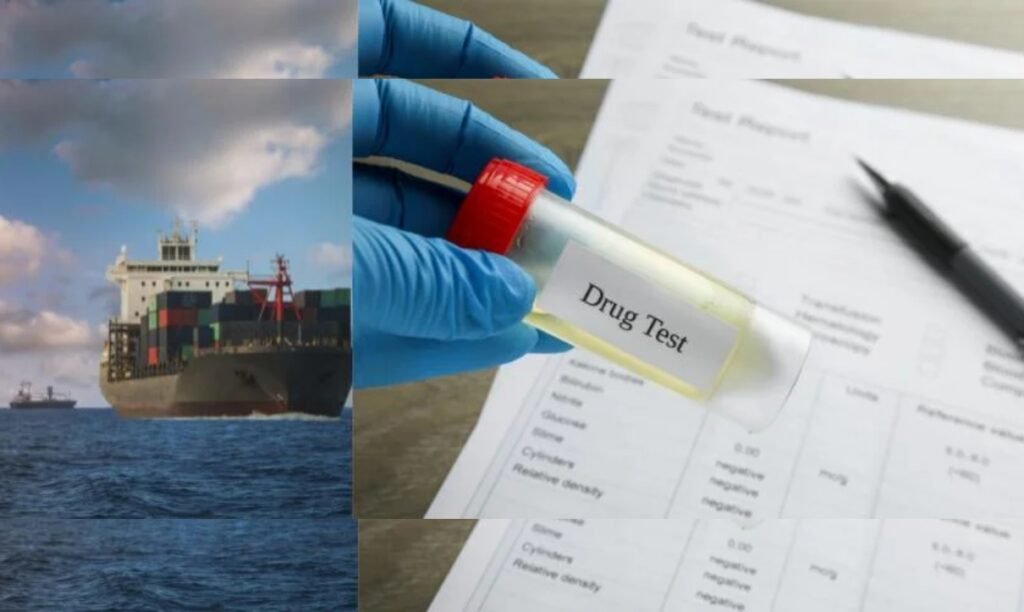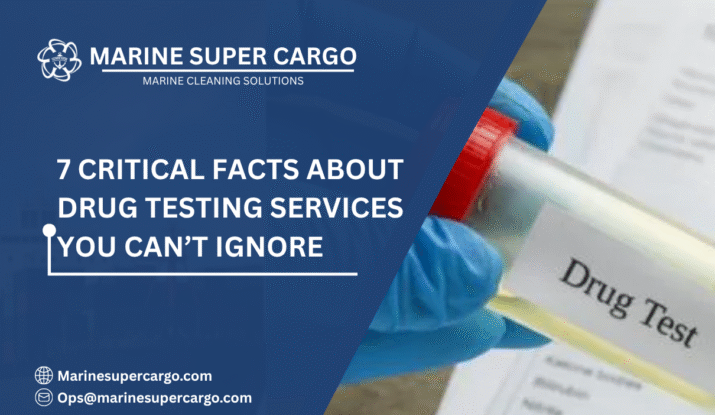Benefits of Alcohol Testing in Corporate Offices
Workplace safety and trust are cornerstones of corporate success. While many organizations focus on technical compliance and equipment checks, they sometimes forget that human reliability plays an equally big role. Office Alcohol Testing steps in as a powerful tool to ensure employees remain alert, capable, and professional. Much like routine inspections keep machines running, alcohol testing keeps people performing at their best. It isn’t about creating fear—it’s about strengthening accountability, protecting reputations, and preserving a positive workplace culture. Let’s explore how alcohol testing benefits corporates, their people, and their long-term growth.
Why Office Alcohol Testing Matters
In high-performing workplaces, even a small lapse in judgment can lead to disastrous outcomes. Office Alcohol Testing eliminates risks by ensuring employees aren’t impaired on duty. Consider it the corporate version of pre-flight checks—without them, serious errors become far more likely. It also prevents reputational harm, since one alcohol-related incident can quickly erode stakeholder trust. Just as the IMO enforces international safety standards, businesses that adopt alcohol testing show they take employee responsibility seriously and value long-term risk management strategies.
Building a Culture of Accountability
Employees want to feel safe in their workplace. Office Alcohol Testing builds collective accountability by confirming that every person is fit for work. Over time, testing helps normalize responsible behavior and reduces unsafe practices. Think of it like harnesses on a ship: no one questions whether they’re necessary—they just use them. Similarly, consistent alcohol testing embeds responsibility into workplace culture, sending a strong message that safety isn’t negotiable. This not only protects employees but also enhances corporate reputation among clients and investors.

Enhancing Workplace Safety
Safety goes hand in hand with reliability. When an employee is impaired, risks multiply—for both themselves and those around them. By implementing Office Alcohol Testing, companies reduce the likelihood of accidents, errors, and operational delays. In high-stakes industries like shipping, aviation, or logistics, mistakes can trigger financial losses and even environmental damage. Random testing provides the assurance that safety standards are upheld daily. Much like maritime crews follow MARPOL guidelines to protect oceans, offices adopt testing to protect team safety.
Legal and Regulatory Compliance
Compliance failures can damage both finances and reputations. As organizations expand globally, adhering to international standards becomes vital. Office Alcohol Testing simplifies compliance with employee safety laws and aligns with frameworks from IMCA and IAPH. Legal compliance boosts management credibility and reassures regulators. Just as shipping industries must comply with MARPOL’s pollution controls to keep vessels operational, corporates must create reliable testing models to ensure continuous operations without legal roadblocks or penalties. Read also about Ensuring safer seas with 0 risks through cargo safety testing.
Reducing Hidden Costs
Unsafe practices don’t just put lives at risk—they create hidden expenses. Accidents cause downtime, insurance premiums increase, and absenteeism grows. A damaged reputation can also drive away clients. Through Office Alcohol Testing, companies cut these costs by preventing incidents before they happen. Prevention here is a financial strategy. Think of it like removing barnacles before they slow a vessel down; smaller costs upfront prevent much bigger repairs down the line. Smart management sees testing as an investment, not a burden. Read also about Employee Alcohol Testing.
Caring for Employees’ Health
Effective alcohol testing balances accountability with care. Identifying impairment allows companies to offer recovery support, counseling, or employee assistance programs. This approach gives staff opportunities for improvement while maintaining safety. Office Alcohol Testing is not about punishment; it’s about early intervention. Much like spotting technical issues before a vessel departs, early detection helps individuals regain performance before larger consequences unfold. Supportive employers build trust by combining enforcement with genuine concern for employee well-being. Learn more about the Importance of Drug Testing at Work. Read also about the Importance of Drug Testing at Work.
Technology’s Role in Alcohol Testing
In modern workplaces, fairness in testing is vital. Outdated systems create mistrust, while advanced methods ensure accuracy. Today, office alcohol testing uses breath analyzers, saliva swabs, and AI-driven random selection to guarantee impartiality. These innovations minimize bias, reduce turnaround times, and build program credibility. Just as shipping companies invest in hull-cleaning technology to comply with sustainability rules, corporates must adopt modern tools for human safety. Transparent and efficient methods enhance trust among both employees and regulators.
✅ 4 Things to Check for Safety at Sea pic.twitter.com/dAxhJQ2i6U
— Marine Super Cargo (@Marinsupercargo) September 14, 2025
Marine Supercargo Expands Services: Drug & Alcohol Testing for Safer Seas
Marine Supercargo, globally known for marine hull cleaning services that promote compliance and efficiency, has expanded into drug & alcohol testing solutions for the maritime sector. This new service addresses a critical safety challenge: ensuring crews remain fit to operate within international safety frameworks.
By offering testing alongside cleaning, Marine Supercargo creates a complete operational safety net. Ship owners, operators, and managers gain tools to meet IMO and IMCA requirements while also reducing delays, risks, and environmental hazards. One impaired crewmember can jeopardize entire voyages; Marine Supercargo’s integrated approach prevents such risks. Together, hull cleaning and alcohol testing provide a holistic framework that protects ships, crews, and corporate reputations at sea.
Strengthening Reputation Protection
Reputation is harder to repair than equipment. Companies known for strong safety cultures are more trusted by clients, regulators, and employees alike. Office Alcohol Testing strengthens this reputation by demonstrating consistent dedication to safety standards. Avoiding scandals or compliance failures translates into long-term respect. Just as ports trust vessels rated under IAPH programs, clients trust corporations when they see fair and transparent testing practices. Protecting reputation is not an afterthought—it’s a proactive strategic goal.

Future Trends in Alcohol Testing
The future points toward integration between testing and wellness initiatives. Expect AI systems, biometric monitoring, and employee health analytics to work alongside traditional testing methods. Organizations that use Office Alcohol Testing as part of a broader wellness culture will gain a reputational edge. Much like eco-friendly hull-cleaning innovations are reshaping maritime practices, alcohol testing will evolve into wellness-linked prevention strategies. Forward-thinking corporates will focus on reputation, efficiency, and trust through holistic employee support frameworks.
Conclusion
Corporate offices face growing scrutiny from regulators, clients, and the public. Office Alcohol Testing protects organizations in three major ways: it builds safer workplace cultures, reduces hidden costs, and strengthens long-term reputations. Prevention is always more effective than crisis management. By treating alcohol testing as a shared responsibility, companies send a clear message of accountability and care. For more insights into compliance and sustainable practices, visit CleanShip.co and safeguard your operations for the future.
FAQs:
Q1. Why is Office Alcohol Testing important for businesses?
It safeguards teams from unsafe practices, ensures compliance, and enhances employee and client trust in workplace accountability.
Q2. How does alcohol testing reduce hidden costs?
By preventing accidents, absenteeism, and rising insurance claims, alcohol testing saves major operational and reputational expenses.
Q3. How does testing support compliance with global standards?
Q4. What’s the link between alcohol testing and hull cleaning?
Both are preventive measures. Clean hulls save costs and conserve energy, while alcohol testing secures human reliability. Together, they boost efficiency.
Q5. What are the future trends in alcohol testing at offices?
Expect AI-driven randomization, faster analysis methods, and integration with wellness programs. These trends enhance fairness, trust, and holistic safety.


